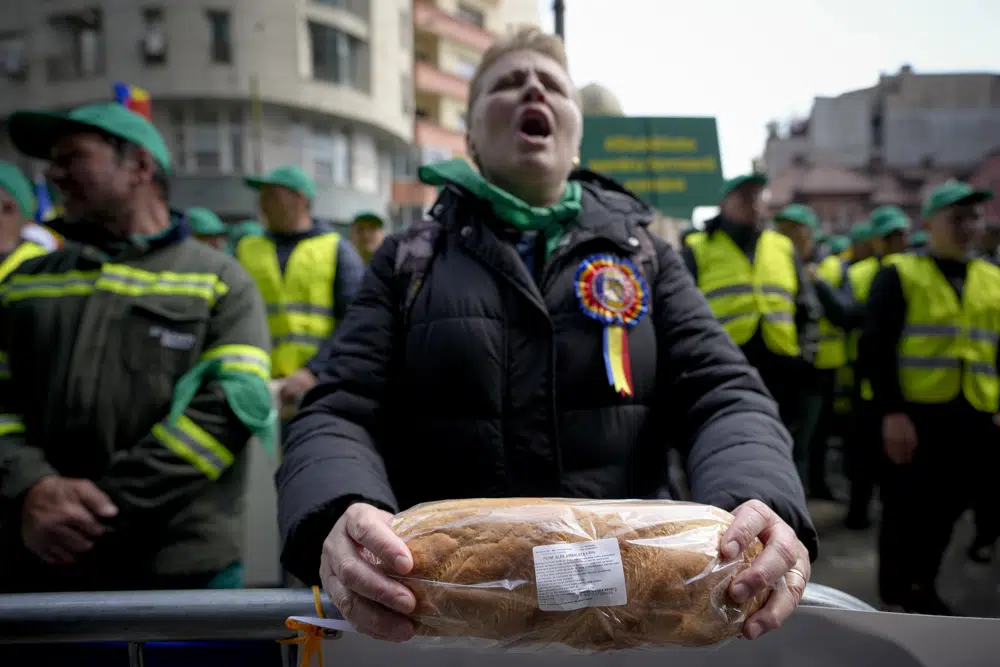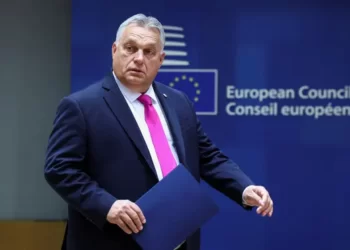Slovakia became the third European Union country to ban food imports from Ukraine on Monday, April 17, 2023.
Slovakia followed Poland and Hungary, both of which on Saturday, April 15, 2023, announced bans on Ukrainian food imports through to June 30. They did so in response to rising anger from farmers who say that a glut of grain in their countries is causing them economic hardship.
Ukraine is a major global supplier of wheat, barley, sunflower oil and other affordable food products that developing nations depend on. The war upended those supplies to Africa, the Middle East and parts of Asia.
The EU reacted to the crisis by lifting tariffs and other trade duties on Ukraine to help keep its economy afloat. That helped to divert Ukraine’s grain flows destined for Africa and the Middle East through Europe, but much of this food has instead remained in the bordering countries, creating a glut that has caused high losses for local farmers.

The EU’s executive branch, the European Commission, manages trade on behalf of the 27 member countries and objects to them taking unilateral or uncoordinated measures.
At a briefing in Brussels, two spokespeople stressed gratitude to Poland and other Central European countries for supporting Ukraine, but said a solution must be found that respects the EU legal framework.
“We are dealing with a war, right? And this war has consequences, obviously, on farmers and more generally, the population in Ukraine and the European Union and its member states,” Eric Mamer, the Chief spokesperson, said.
Mamer acknowledged that Poland and other countries “have been doing their utmost in order to help Ukraine. “So this is not about sanctioning. This is about finding solutions based on EU law in the interests at the same time of the Ukrainians and of the EU,” he added.

Five EU countries that neighbor Ukraine have asked the EU to treat the matter of Ukrainian food with urgency. Poland, Bulgaria, the Czech Republic, Hungary and Slovakia argue that they cannot allow their own farmers to bear the cost of disruption that Ukrainian grain and other agriculture products are causing to their markets.
Bulgaria is reportedly considering a similar ban. The Czech Republic stated that it is not planning one.
Meanwhile, a delegation of Ukrainian officials visited Warsaw on Monday for government consultations on the issue. Poland faces an election in the fall and farmer groups have been piling pressure on the government with frequent protests lately.
Unusual For EU Member States To Take Unilateral Trade Action
Ian Mitchell, an Economist and London-based Co-director of the Europe program at the Center for Global Development, disclosed that it is unusual for EU member states to “take unilateral trade action.”
Mitchell, who specializes in agriculture and trade, argued that the move undermines the solidarity of the EU and shows the power of farmers’ voices in politics. He described it as an attempt to get the EU to provide more support for the agricultural industry, even though aid is already generous for farmers in Eastern and central Europe.
“You’re a consumer in Hungary, Slovakia or Poland, then effectively the government has just ensured that you’re going to be paying a higher price for your food. The balance of the food lobby is so powerful that it can get the government to do that even in a cost-of-living crisis.”
Ian Mitchell
With the exception of Hungary, Ukraine’s EU neighbors are allies of Ukraine who favor its future membership in the EU.
Yet already the EU’s decision to banish tariffs for Ukrainian goods as a result of Russia’s invasion underlines the challenges that would come with integrating a huge food producer with the rest of the bloc.
READ ALSO: Former U.S. Senator Urges Politicians In Northern Ireland To Revive The Government























